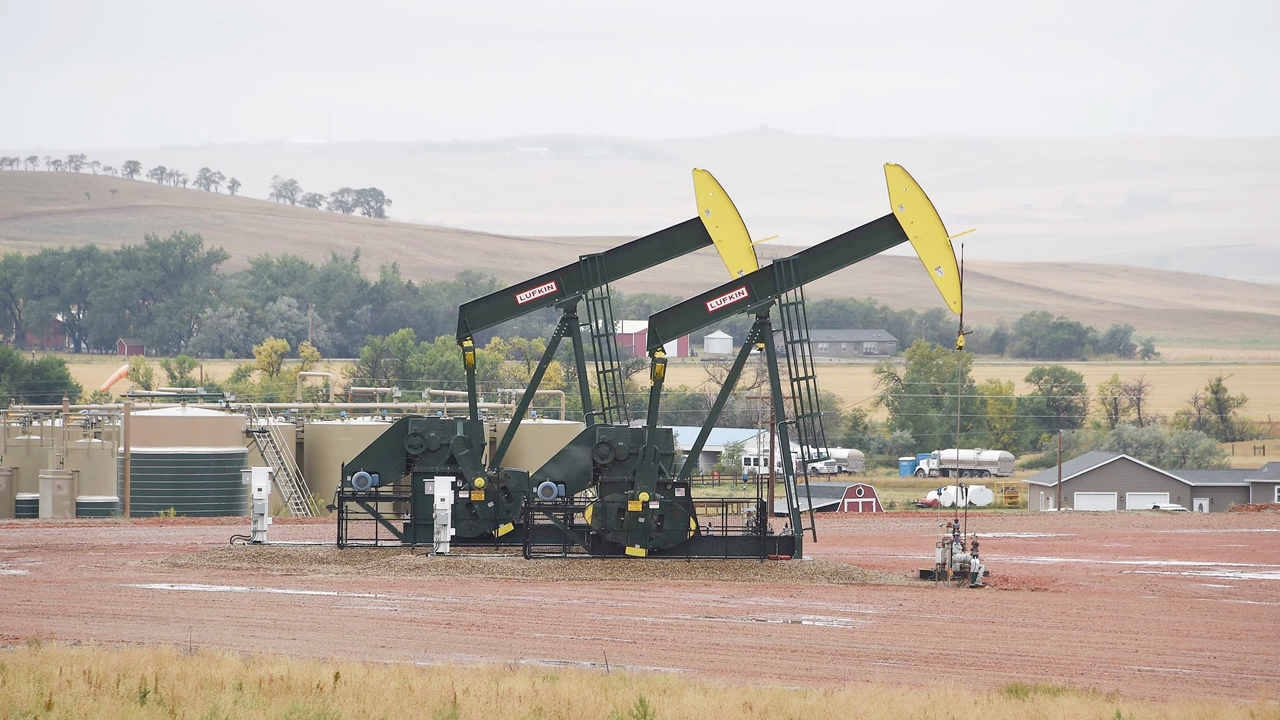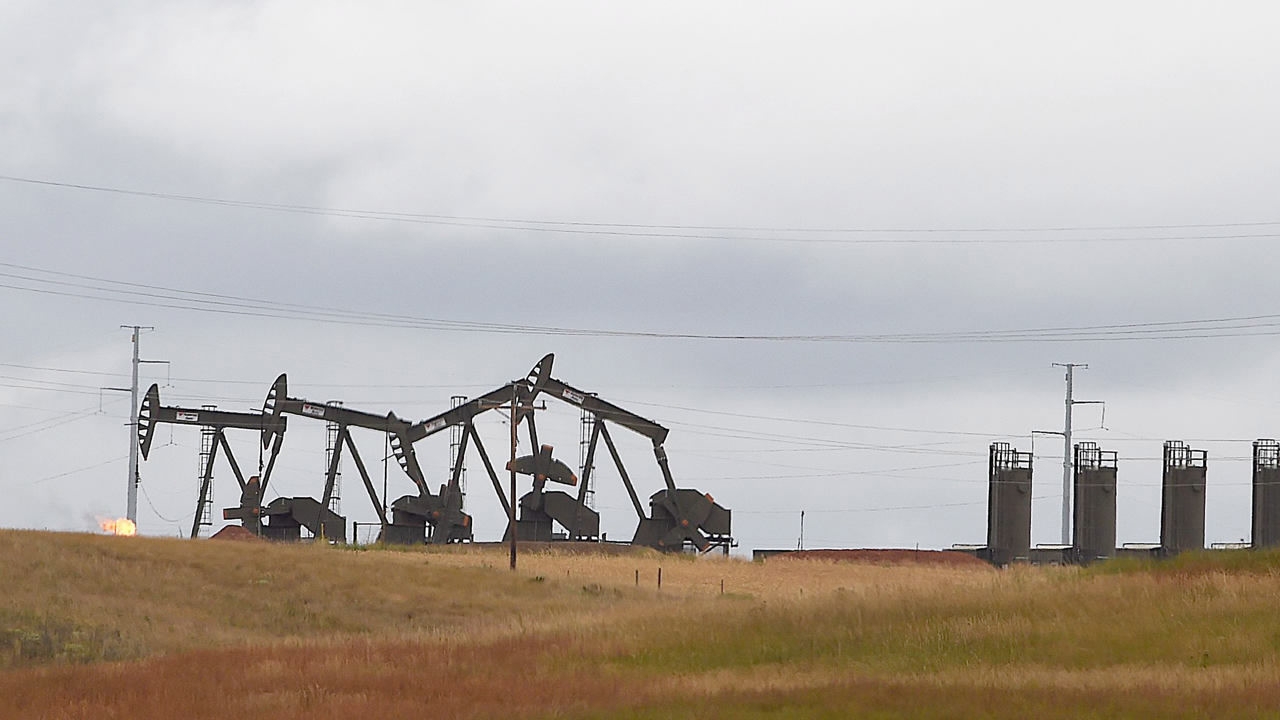By CGTN’s John Terrett
As the Organization of Petroleum Exporting Countries (OPEC) wrestles with production cuts to bolster oil prices, US shale oil producers are boosting production. Energy analysts said wells that were not profitable a year ago are making money now, hobbling OPEC's efforts.
For the past 24 months or so, the global supply and demand balance for oil has been out of whack since the oil cartel ramped up output in a bid to drown out the US's new shale oil producers in 2014. It somewhat backfired, creating a massive glut that’s been getting bigger-driving down crude prices to record lows.

Pump jacks seen on the Bakken Shale Formation, North Dakota, US, September 5, 2016. /VCG Photo
That is great for car drivers and truck companies of course, but grim for oil producing nations in and out of OPEC, some of whom can no longer support their own economies, Venezuela being the most obvious example.
While prices have been flirting with all-time lows and the investment spigot turned off in most of the world, the US shale oil producers have been spending their time wisely.
Thanks to cutting costs for labor, the US shale oil producers have “come out of this whole cycle leaner and meaner than what OPEC really expected”, according to Michael Cohen, Head of Energy Commodities Research at Barclays.
"They cut cost for labor, costs in terms of their overheads. They cut costs because they were able to dramatically improve the productivity of their operation," Cohen said.
As a result, US Drilling is being ramped up. Meanwhile, production of US shale oil has rebounded by half a billion barrels a day, a big increase over last summer.

Pump jacks are seen on the Bakken Shale Formation, North Dakota, US, September 6, 2016. /VCG Photo
But Cohen concerned more about a two-speed oil supply at this moment – the old projects starved of investment for the past two years and the industry “has really seen a new life breathed into it as of last year where OPEC started to say OK we're going to jump back in and manage the market again”.
In other words, OPEC no longer has the leverage it once had to control prices, and those prices are likely to remain low for some time to come.









